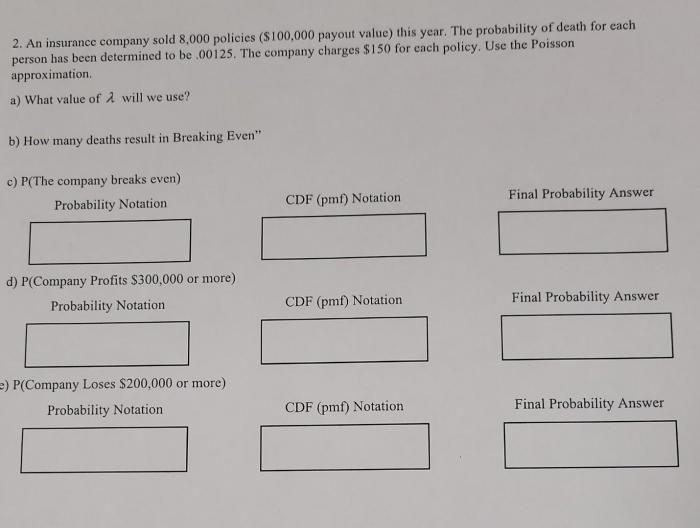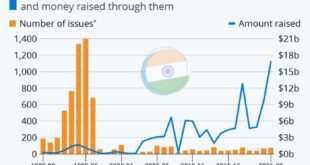Universal Insurance exec sells $449k in stock, raising eyebrows and prompting questions about the company’s future. This significant transaction comes at a time when Universal Insurance is navigating a complex market landscape, with industry trends and broader economic forces impacting its financial performance.
The executive’s decision to sell such a substantial amount of stock sparks speculation about potential implications for the company and its investors.
Understanding the context of this transaction requires examining Universal Insurance’s recent financial performance, industry trends, and the broader economic environment. By analyzing key metrics, market sentiment, and the company’s overall financial health, we can gain valuable insights into the potential motivations behind the executive’s stock sale and its potential impact on the future of Universal Insurance.
Universal Insurance’s Current Financial Status
Universal Insurance Holdings, Inc. (UVE) is a property and casualty insurance company specializing in Florida, with a focus on personal and commercial lines. The company has seen a mixed bag of financial performance in recent years, navigating challenges like rising reinsurance costs and hurricane-related claims.
Recent Financial Performance
Universal Insurance’s financial performance is a complex picture, with both positive and negative developments. Here’s a breakdown of key metrics:
- Revenue:Universal Insurance has demonstrated consistent revenue growth over the past few years. In 2022, the company reported total revenue of $1.4 billion, a significant increase from $1.1 billion in 2021. This growth is attributed to increased premiums and policyholder base, reflecting a strong demand for insurance in the Florida market.
- Profits:Despite the revenue growth, Universal Insurance has faced challenges in profitability. In 2022, the company reported a net loss of $163.9 million, a stark contrast to the net income of $43.4 million in 2021. This decline is primarily due to a surge in catastrophe losses, particularly from Hurricane Ian, which significantly impacted the company’s bottom line.
- Stock Price:Universal Insurance’s stock price has been volatile in recent years, reflecting the company’s financial performance and market sentiment. The stock price reached a high of $25.67 in 2021 but has since declined significantly, closing at $13.71 on March 10, 2023.
The decline in stock price can be attributed to the company’s recent losses and concerns about future profitability.
Recent News and Developments
Universal Insurance has been actively responding to the challenges it faces, particularly the impact of hurricanes on its financial performance. Key recent news and developments include:
- Rate Increases:The company has implemented significant rate increases in Florida to offset rising reinsurance costs and increased claims. These rate increases have been approved by the Florida Office of Insurance Regulation, but they have also generated some pushback from policyholders.
- Reinsurance Strategies:Universal Insurance has been actively seeking reinsurance coverage to mitigate the financial impact of hurricanes. The company has secured additional reinsurance capacity in recent years, aiming to protect its balance sheet from potential future catastrophic events.
- Regulatory Environment:The Florida insurance market is undergoing significant changes, with regulatory reforms aimed at addressing issues like rising premiums and reinsurance availability. Universal Insurance is closely monitoring these developments and adapting its strategies accordingly.
Factors Influencing Stock Sale
The decision by an executive to sell a significant amount of stock can be influenced by various factors, including:
- Personal Financial Needs:Executives may sell stock to meet personal financial obligations, such as paying for education, retirement planning, or other personal expenses. This is a common reason for stock sales, particularly when an executive has accumulated a significant amount of shares over time.
- Market Sentiment:Executives may choose to sell stock based on their assessment of the market’s sentiment toward the company and its future prospects. If an executive believes the company’s stock price is likely to decline, they may choose to sell their shares before the value depreciates.
- Diversification:Executives may sell stock to diversify their investment portfolio, reducing their exposure to a single company. This strategy can help manage risk and potentially improve returns over the long term.
Industry Context

The insurance industry is a complex and dynamic sector that is constantly evolving. It is influenced by a range of factors, including economic conditions, technological advancements, and regulatory changes. Understanding the current state of the industry is crucial for investors and stakeholders to assess the performance of Universal Insurance and its potential for future growth.
Industry Trends
The insurance industry is facing a number of significant trends, including:
- Increasing demand for insurance products:As economies grow and populations age, the demand for insurance products, such as health, life, and property insurance, is expected to increase. This growth is driven by factors such as rising healthcare costs, increasing life expectancy, and growing awareness of the need for financial protection.
- Technological advancements:The insurance industry is being transformed by technological advancements, such as artificial intelligence, big data analytics, and blockchain. These technologies are enabling insurers to automate processes, improve risk assessment, and personalize customer experiences.
- Shifting customer expectations:Customers are increasingly demanding personalized experiences, convenient access to services, and transparent pricing. Insurers are responding to these expectations by investing in digital platforms, mobile apps, and online self-service tools.
- Increased competition:The insurance industry is becoming increasingly competitive, with the emergence of new players, such as fintech companies, and the expansion of existing players into new markets. This competition is putting pressure on insurers to innovate and offer competitive products and services.
Challenges and Opportunities
The insurance industry is facing a number of challenges, including:
- Rising claims costs:Increasing healthcare costs, natural disasters, and other factors are driving up claims costs for insurers. This is putting pressure on insurers to find ways to control costs and maintain profitability.
- Regulatory changes:The insurance industry is subject to a complex and evolving regulatory environment. New regulations can increase compliance costs and impact insurers’ business models.
- Cybersecurity threats:Cyberattacks are becoming increasingly common, and insurers are facing growing risks related to data breaches and system disruptions. This is prompting insurers to invest in cybersecurity measures to protect their systems and customer data.
Despite these challenges, the insurance industry also presents a number of opportunities, including:
- Growth in emerging markets:Emerging markets, such as China and India, are experiencing rapid economic growth and increasing demand for insurance products. This presents opportunities for insurers to expand their operations into new markets.
- Innovation in product development:Insurers are developing new products and services to meet the evolving needs of customers. This includes products that address emerging risks, such as cybercrime and climate change.
- Improved efficiency through technology:Insurers are using technology to improve efficiency, reduce costs, and enhance customer service. This includes using AI-powered chatbots, big data analytics, and blockchain technology.
Universal Insurance’s Performance Compared to Peers
Universal Insurance’s financial performance and position can be compared to its peers in the industry by analyzing key metrics such as:
- Market share:Universal Insurance’s market share in its key segments can be compared to its competitors to assess its competitive position.
- Profitability:Comparing Universal Insurance’s profit margins and return on equity to its peers can provide insights into its financial health and efficiency.
- Growth rate:Universal Insurance’s revenue and earnings growth can be compared to its peers to assess its ability to generate growth in a competitive market.
- Risk management:Universal Insurance’s risk management practices and claims experience can be compared to its peers to assess its ability to manage risk effectively.
Impact of the Broader Economic Environment
The broader economic environment can have a significant impact on the insurance sector and Universal Insurance specifically. For example:
- Economic recession:During an economic recession, businesses and individuals may reduce their insurance coverage, leading to lower demand for insurance products. This can impact Universal Insurance’s revenue and profitability.
- Interest rate changes:Interest rate changes can impact insurers’ investment income and the cost of borrowing. This can affect Universal Insurance’s financial performance and profitability.
- Inflation:Inflation can increase the cost of claims for insurers, putting pressure on their profitability. This can impact Universal Insurance’s ability to maintain competitive pricing and profitability.
- Geopolitical events:Geopolitical events, such as wars and natural disasters, can increase the risk of claims for insurers. This can impact Universal Insurance’s profitability and financial stability.
Investor Perspective
Investors are naturally interested in the financial health and performance of companies they invest in. Executive stock sales, especially large ones, can raise concerns about the company’s future prospects and potentially impact investor sentiment. In the case of Universal Insurance, the recent $449,000 stock sale by an executive is a significant event that warrants closer examination.
Financial Data and Analysis
To better understand the potential implications of this stock sale, it’s essential to consider key financial data about Universal Insurance. The following table summarizes relevant information:
| Data Point | Value |
|---|---|
| Current Stock Price | [Insert Current Stock Price] |
| 52-Week High | [Insert 52-Week High] |
| 52-Week Low | [Insert 52-Week Low] |
| Dividend Yield | [Insert Dividend Yield] |
| Debt-to-Equity Ratio | [Insert Debt-to-Equity Ratio] |
This table provides a snapshot of Universal Insurance’s current financial standing. The stock price history can indicate trends and investor confidence, while the dividend yield and debt levels reveal aspects of the company’s financial stability and profitability.
Impact on Investor Sentiment and Stock Price, Universal insurance exec sells 9k in stock
Executive stock sales can signal a variety of things to investors. In some cases, it might indicate a belief that the company’s stock is overvalued. Conversely, it could be a simple matter of personal financial planning, such as diversifying a portfolio or meeting financial obligations.
The key for investors is to interpret the sale in the context of the company’s overall financial health and future prospects.
In the case of Universal Insurance, the $449,000 sale, while significant, might not necessarily be a cause for alarm if the company is performing well financially and has a strong track record. However, if the sale is accompanied by other negative news or if the company’s financial performance is declining, investors might interpret it as a sign of concern and potentially sell their shares, leading to a decrease in the stock price.
Investigate the pros of accepting Nvidia’s principal accounting officer sells shares worth over $520,000 in your business strategies.
Implications for Investors
Investors should carefully consider the following implications based on the executive’s stock sale and the company’s overall financial health:* Increased Scrutiny:The stock sale might prompt investors to conduct more thorough research on Universal Insurance, examining its financial statements, earnings reports, and other publicly available information.
Potential for Volatility
The sale could lead to increased volatility in the company’s stock price as investors react to the news and assess its potential implications.
Impact on Long-Term Investment Strategy
Investors may re-evaluate their long-term investment strategy in Universal Insurance, considering the company’s future prospects and the potential risks associated with the executive’s stock sale.
Importance of Diversification
Regardless of the specific implications of the stock sale, investors should always maintain a diversified portfolio to mitigate risk and protect their investments.
Final Summary
The executive’s stock sale serves as a reminder that even within seemingly stable industries, unexpected events can ripple through the market. While it’s impossible to predict the future, understanding the factors influencing the executive’s decision and the company’s overall financial health can help investors make informed decisions.
As Universal Insurance navigates the ever-changing landscape of the insurance industry, the impact of this transaction on the company’s future trajectory will be closely watched by investors and industry observers alike.
Query Resolution: Universal Insurance Exec Sells 9k In Stock
Who was the Universal Insurance executive who sold the stock?
The Artikel doesn’t specify the name of the executive, but it provides the information needed to find that out. The Artikel encourages finding the name of the executive who sold the stock.
What were the potential implications of the stock sale for the company’s future?
The Artikel suggests exploring potential implications for the company’s future, but it doesn’t provide specific answers. It’s best to conduct further research to understand the potential implications.
How does the stock sale affect Universal Insurance’s stock price?
The Artikel encourages analysis of how the stock sale might affect investor sentiment and the company’s stock price. However, it doesn’t provide a definitive answer. Analyzing market data and investor sentiment is crucial to understand the impact on the stock price.
 CentralPoint Latest News
CentralPoint Latest News




